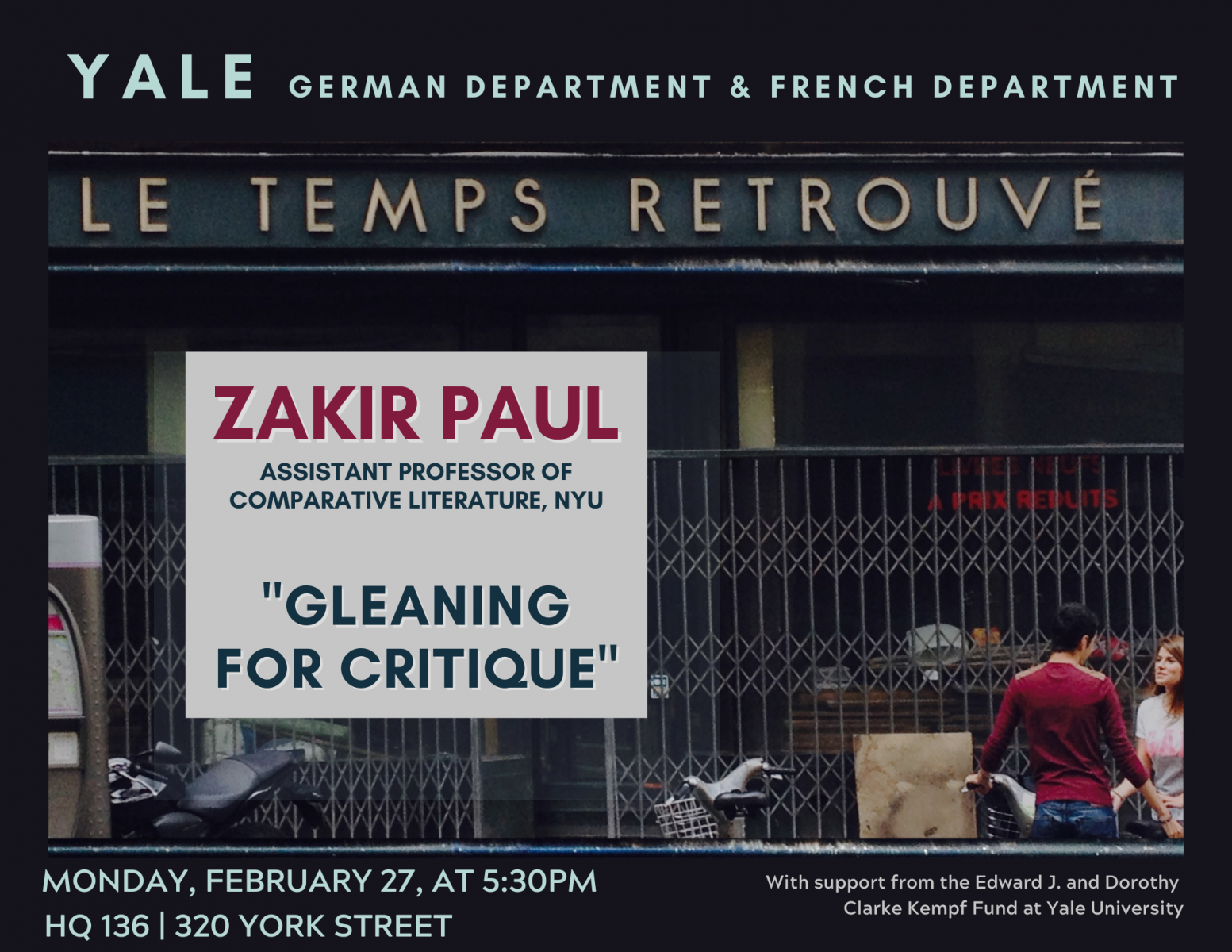Event co-sponsored with the Department of Germanic Languages and Literatures
Zakir Paul’s Lecture Title: Gleaning for Critique

This talk considers the practice and poetics of gleaning from Baudelaire to Agnès Varda. Varda’s idiosyncratic film, The Gleaners and I (2000) is often considered as a turning point both in her work and in digital filmmaking. It explores figures of gleaning from the visual arts to politics and law, as well as contemporary practices of repurposing, recuperation, and recycling. While the figure of the gleaner is originally an agricultural, not to say Adamic one, in modernity, it takes on a renewed critical aspect as it becomes the object of debates in poetics and politics, especially readings of Baudelaire by Walter Benjamin. Historically attuned critics, including Antoine Compagnon, have argued that urban ragpickers were hardly the figure of insurrectional potential Benjamin imagined, but often merely impoverished lookouts or police informants paid to keep eyes on the streets of Paris. Part of a larger refutation of Benjamin’s reading of Baudelaire as “a double-agent,” whose poetics supposedly betray the class-interests of the Second Empire, detailed refutations about gleaners become a way of consigning critical and speculative reading to the trash heap of ideology. Yet what such corrective projects fail to recognize is the contestatory anachronistic relation to history at stake in the project of critical gleaning, which looks to fragments of the past with the hope that its scraps might provide the material to write and act differently in the present, constituting a weak counter-force to the monuments of conservative tradition and the suicidal novelty of industrial and speculative capitalism. By appealing to the notion of historical repetition and recurrence, can literary critics still challenge the positivism and progressive (that is, disastrous) narrative of linear homogenous time that underwrite periodization? The paper concludes with elements of response, drawing on the anarchic archives of Quebecois critic Jean-François Hamel.
